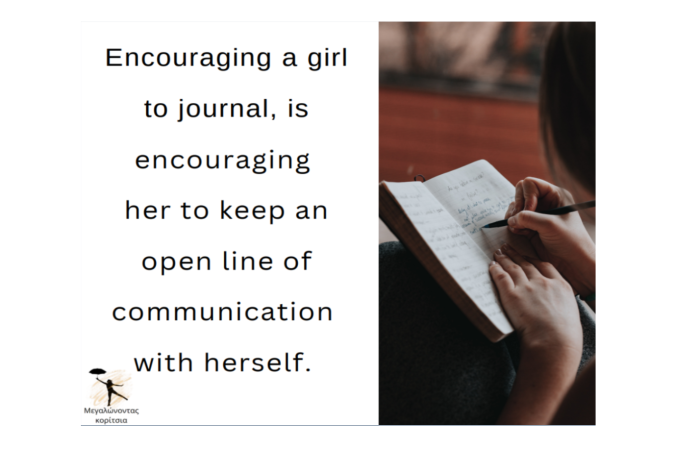- From a young age give her many opportunities to make choices.
Even if it is a choice between the blue cup or the yellow, not only has this been proven to improve behaviour and cooperation, it teaches a child from a very young age that you are listening to what they have to say and that they can use their voice and have an impact.
As your daughters grows up the topics, she has choices in should grow in number and change accordance with her abilities and age.
- Asking for the bill at a restaurant or asking for something in a shop
At a young age using our voice is based on cause and effect, ‘I speak and I get a response from the environment’. The more she practices at a young age and gets used to communicating, the more confident she will become in speaking.
- Ask her opinion about things
Be curious and ask her ‘What do you think?’. Give her time to express her thoughts and formulate her opinions. It can be on any topic big or small, general or specific. Make sure you allow for her opinion once expressed. Formulating opinions will not get you far if you are told they are wrong each time.
Use follow up questions to encourage critical thinking ion topics and see things from different points of view.
- Use your voice in front of her
Whether it is within the family home regarding voicing your wants and needs or in social encounters, model using your voice. Watching women in her life use their voice and being heard is a valuable learning experience.
- Read and watch movies about women who used their voice and had an impact on the world.
There are a great array of movies and books about strong, dynamic women who used their voice to bring about change and defend what is right. Watch them or read them together and talk about them.
- When you argue listen to her point of view even if that does not change your final answer.
Let your daughter practice debating, discussing and standing her ground. This does not mean she needs to get her way. The value is in the process of her learning how to negotiate and support her point of view with logical arguments.
- Let her answer when she is spoken to (especially by adults)
Allow your child to answer for herself, whether it’s responding to a greeting or being asked a question. Allow time and wait for her to answer for herself.
- Teenagers could be making their own arrangements and appointments over the phone.
As parents we tend to over cater and support our children past the point that they need it. Teenagers especially should be practicing life skills independently as soon as they are able to do so. Make allowances for a few mistakes. This is why they need to practice.
- Make space for her to be allowed to sometimes say No
Letting her know that there are times when she can simply say No and that is heard and accepted can go a long way. This is especially true about any choice about her body and personal boundaries (e.g giving grandpa a kiss )
- Ask her what she needs and what she wants
Teaching young girls from a young age to be clear in communicating what they want and what they need can have a big impact in later relationships. Sure, we cannot always have what we want but we can be clear in asking for it, unapologetically. She will learn that its ok to have needs and desires and that asking for what you want is ok.
- Avoid over focusing on politeness when she communicates
As long as she is not being disrespectful or hurtful, having a loud voice, strong opinions and a lot to say should not be considered rude. Girls are often told they are too loud, too rude and too much. This will make her shrink herself to accommodate others.
Lastly, but most importantly, how do you feel about using your voice, voicing opinions and asking for what you need and want? Do you know that your voice matters? For most of us this does not come easily and is definitely not something we learnt at a young age. Before trying to tach this to your daughter, it might be worth practicing and getting comfortable using your own voice, it will probably be harder for you to get used to doing than for her.




